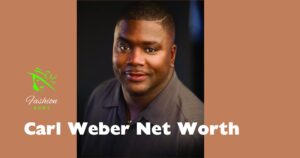In our fast-paced world, we are often conditioned to react quickly to every stimulus. The constant barrage of information, notifications, and demands on our attention can leave us feeling overwhelmed and reactive. This perpetual state of alertness can lead to hasty decisions, increased stress, and a sense of disconnection from our surroundings and ourselves. The pressure to respond immediately to every situation can rob us of the opportunity for deeper understanding and more thoughtful action.
However, the wisdom in Tymoff’s quote “Learn to sit back and observe. Not everything needs a reaction” offers a refreshing perspective on navigating life’s complexities. This simple yet profound statement invites us to pause and reconsider our default mode of constant reaction. It suggests that there is power in observation, in taking a step back to assess situations more fully before deciding how, or even if, to respond.
This article explores the profound impact of observation and mindful response in our daily lives. We will examine how the simple act of sitting back and observing can transform our approach to life’s challenges and opportunities. Join us as we uncover the transformative power of mindful observation in an increasingly reactive world.
Related post: Meditation Mantras: Unlocking Inner Peace and Power
The Power of Observation: A Gateway to Clarity
Observation is more than just seeing; it’s about understanding the nuances of our environment and the people around us. By cultivating this skill, we can gain a broader perspective on situations, improve our decision-making processes, enhance our emotional intelligence, and foster deeper connections with others. The art of observation allows us to step back from the immediate rush to react and instead absorb the full context of a situation.
Developing the Art of Observation
To develop the art of observation, start by practicing mindful awareness. Engage in regular meditation or mindfulness exercises, focusing on being present in the moment and paying attention to your surroundings without judgment. Next, engage all your senses. Notice not just visual cues, but also sounds, smells, and textures. Practice describing your environment in detail to sharpen your observational skills. Finally, cultivate curiosity. Approach situations with genuine interest and ask open-ended questions to deepen your understanding.
Breaking Free from Reactivity: The Path to Thoughtful Response
Reactivity often leads to impulsive decisions and unnecessary stress. To break this cycle, create a pause before responding. Take a deep breath or count to ten in challenging situations. Identify your triggers by recognizing what typically provokes a reactive response in you, and develop strategies to manage these triggers. Practice emotional regulation by learning techniques to manage strong emotions and developing self-awareness to recognize your emotional states.
The Wisdom in Quietness: Finding Clarity in Stillness
Quietness offers a sanctuary from external noise, allowing us to connect with our inner selves, process emotions more effectively, tap into our intuition, and gain clarity on complex issues. To embrace quietness in daily life, create silent spaces by designating quiet time in your routine and finding a peaceful spot for reflection. Practice silent meditation, starting with short periods and gradually increasing duration as you become more comfortable. Engage in nature walks, spending time in natural settings and observing the quiet rhythms of nature.
Developing Emotional Intelligence: The Key to Deeper Connections
Emotional intelligence enhances our ability to understand and relate to others. To develop it, focus on self-awareness by regularly reflecting on your emotions and reactions. Keep a journal to track emotional patterns. Cultivate empathy by practicing active listening without interrupting and trying to see situations from others’ perspectives. Work on your social skills by learning conflict resolution techniques and improving communication skills through practice and feedback.
Read this also: Is Meditation a Sin? Exploring Religious Perspectives
Applying “Not Everything Needs a Response”
This principle can significantly reduce stress and improve our quality of life. Here’s how to apply it:
- Assess the importance: Ask yourself if the situation truly requires your input and consider the long-term impact of your response.
- Choose silence when appropriate: Recognize that silence can be a powerful response and use it to create space for reflection.
- Respond with intention: When you do respond, do so thoughtfully and purposefully, aligning your response with your values and goals.
The Benefits of Mindful Observation
Here’s an expanded list of benefits of learning to sit back and observe, presented in bullet points:
Reduced stress and anxiety:
- Lower cortisol levels from fewer knee-jerk reactions
- Decreased feelings of overwhelm by not reacting to every stimulus
- Improved ability to handle pressure situations calmly
Improved relationships:
- Enhanced empathy through a better understanding of others’ perspectives
- Fewer misunderstandings due to hasty reactions
- Stronger connections built on thoughtful communication
- Increased patience in interpersonal interactions
More informed decision-making:
- Ability to gather more comprehensive information before acting
- Reduced likelihood of rash decisions
- Enhanced problem-solving skills through careful observation
- Better long-term outcomes from well-considered choices
Increased overall life satisfaction:
- Greater sense of control over one’s responses to life events
- Improved self-awareness leading to personal growth
- Enhanced appreciation for life’s moments through mindful observation
- Reduced regret from impulsive actions or words
Enhanced emotional intelligence:
- Better recognition and understanding of one’s own emotions
- Improved ability to read and respond to others’ emotional states
- More effective emotional regulation in challenging situations
Improved focus and concentration:
- Enhanced ability to filter out distractions
- Deeper engagement with tasks and conversations
- Increased productivity through more focused efforts
Greater creativity and innovation:
- More time for ideas to incubate and develop
- Increased ability to notice patterns and connections
- Enhanced problem-solving through careful observation of details
Better conflict resolution skills:
- Ability to see multiple perspectives in disagreements
- Reduced escalation of conflicts due to reactive responses
- More effective mediation skills through careful observation
Improved physical health:
- Lower blood pressure from reduced stress reactions
- Better sleep quality due to a calmer mind
- Potential reduction in stress-related health issues
Enhanced spiritual or personal growth:
- Deeper self-reflection and introspection
- Greater mindfulness and present-moment awareness
- Increased sense of inner peace and contentment
Conclusion
In a world that often demands immediate action, learning to sit back and observe offers a powerful alternative. This approach provides a refreshing counterbalance to the frenetic pace of modern life, allowing us to engage with our experiences more deeply and thoughtfully. By cultivating the skill of observation, we equip ourselves with a valuable tool for navigating life’s complexities with greater ease and wisdom.
This practice enables us to make more thoughtful decisions, as we take the time to gather information and consider multiple perspectives before acting. It also fosters deeper connections with those around us, as we learn to truly listen and understand others without rushing to judgment or reaction. Moreover, this mindful approach can lead to increased self-awareness and personal growth.
Remember, as Tymoff wisely notes, not everything needs a reaction. Sometimes, the most powerful response is simply to observe and understand. By embracing this philosophy, we can reduce unnecessary stress, avoid impulsive actions we might later regret, and cultivate a sense of inner peace amidst life’s chaos. Ultimately, the art of sitting back and observing empowers us to live more intentionally, responding to life’s challenges and opportunities with clarity, compassion, and wisdom.












